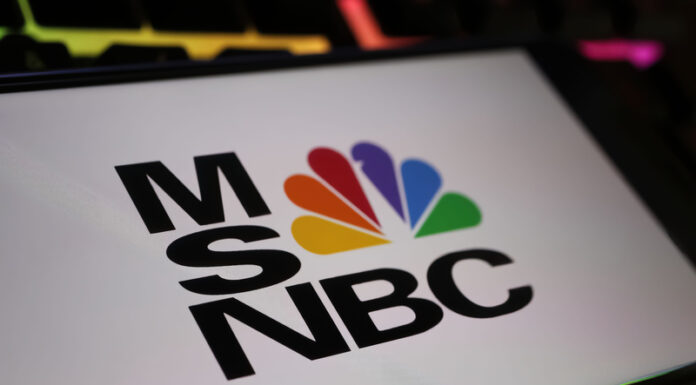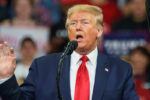Joe Scarborough, the longtime host of “Morning Joe,” is steering the show back to its original format by incorporating long-form interviews with cultural figures such as musicians, actors, and directors. In a recent interview with The Hollywood Reporter, Scarborough emphasized his desire to expand beyond politics, foreign policy, and the economy, aiming to include conversations about music, film, and Broadway.
Scarborough recalled when Hollywood figures like Steven Spielberg, Ron Howard, and Bradley Cooper were frequent guests on “Morning Joe.” He desired to return to the show’s “original concept.”
Scarborough initially launched a separate primetime show, “Joe Scarborough Presents,” for these interviews but later chose to bring them back to the morning program. “I don’t want to have Christopher Nolan on at 8:00 at night,” he explained, emphasizing his desire for the “Morning Joe” audience to hear from Nolan, Robert Downey Jr., and other “Oppenheimer” cast members.
Recent changes at MSNBC have facilitated this shift. Following the departure of former MSNBC president Rashida Jones, Rebecca Kutler has stepped in as interim president while the network prepares for a transition into a new standalone company, currently referred to as “SpinCo.” Scarborough is optimistic about the changes, noting that “Morning Joe” will have a streamlined management structure.
“We’re going to make this as entrepreneurial as possible,” he stated. Scarborough also proposed a “Morning Joe” town hall initiative, where viewers subscribing to the newsletter could engage in discussions with guest experts. “These sorts of ideas die in most corporate structures,” he said, but the concept was quickly greenlit under new leadership. He also plans to update the show’s newsletter and podcast for a more personalized approach.
Scarborough pushed back against the idea that featuring non-political content is escapism, calling it a “return to reality.” He pointed to his past decision to have soccer journalist Roger Bennett discuss the Premier League, which was initially met with skepticism but later embraced. “Who doesn’t want to hear Al Pacino talk about his life and his work? Who doesn’t want to hear Christopher Nolan talking about his creative process?” he said, reinforcing his belief that audiences appreciate a broader range of discussions.
“Morning Joe” has seen substantial growth on YouTube, with 338 million views last year, marking a nearly 30% increase from the previous year. Scarborough noted that YouTube allows access to a younger audience that is distinct from traditional TV viewers. “One of the things that I had been worried about was the fear that we were just preaching to the choir,” he said. He highlighted the success of long-form interviews in digital spaces, citing examples such as Mark Zuckerberg’s three-hour sit-down with podcaster Joe Rogan.
Upcoming guests on “Morning Joe” include Mick Jagger and Anjelica Huston, with Scarborough also hoping to secure an interview with Paul McCartney. “Here I am, 18 years later, still reaching for the brass ring,” he remarked.
However, “Morning Joe” has also faced controversy, particularly over Scarborough and co-host Mika Brzezinski’s meeting with former President Donald Trump at Mar-a-Lago, which led to backlash from MSNBC viewers. The decision prompted intense reactions on social media, with some viewers accusing the hosts of “normalizing” Trump. This controversy coincided with a decline in their audience, which dropped from 770,000 to 647,000 viewers within days of the announcement.
The broader media landscape has also changed, with legacy news brands losing influence to digital-first platforms. Scarborough acknowledged that non-traditional media, such as podcasts and YouTube, have gained traction, with figures like Piers Morgan achieving significant success through online formats. “It’s great,” Scarborough said, emphasizing that embracing different platforms allows “Morning Joe” to expand its reach and avoid stagnation.
As MSNBC transforms, “Morning Joe” is positioning itself to adapt. Scarborough remains focused on diversifying content, enhancing audience interaction, and making “Morning Joe” more than a political talk show. With a renewed emphasis on cultural conversations and long-form storytelling, the program aims to attract a broader and more engaged viewership.







